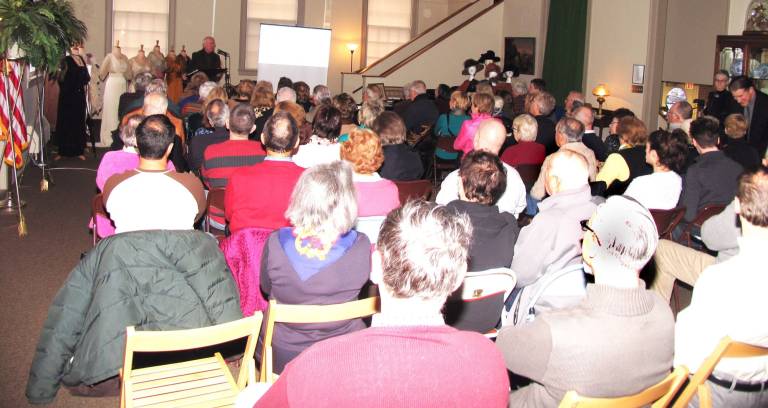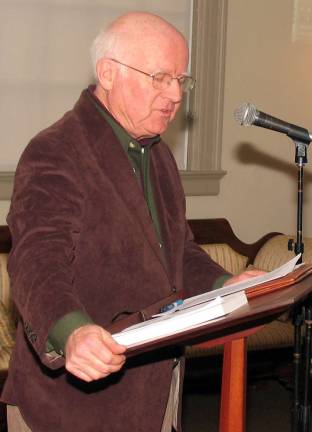Historical Society presents program on history of the Wisner Family


WARWICK — More chairs were called for Sunday afternoon, Feb. 24, to avoid standing-room-only at a well-attended program on the Wisner family held at the Historical Society of the Town of Warwick AW Buckbee Center.
Guest lecturers for the day were Warwick Town Historian Dr. Richard Hull and Village Historian Jean Beattie May.
Before beginning his talk, Hull lamented that he could have used a background in genealogy as well as history for this particular topic since there were numerous descendents in Warwick and across the country who can trace their ancestry back to the Wisner family who emigrated from Switzerland to the New World in the early 18th century.
He explained that the Wisner name was originally Weesner and that Johannes Weesner, who had been an officer in the prestigious Swiss contingent of the Allied Army commanded by the Prince of Orange against French King Louis XIV, first settled at Hempstead on Long Island.
The European diasporic family
In 1713 he signed an agreement for land in the Warwick valley and he became the first person to establish a farm in what would become the Town of Warwick. In 1714 he obtained full ownership of his land, some 100 acres.
“The settlement of the Wisner family in 1713 marked perhaps the most important turning point in our community’s long history,” said Hull. “This pioneering family was the first European diasporic family to permanently settle in our town and they launched the era of commercial agriculture.”
Hull explained that the indigenous Indians were hunters and gatherers and had only adopted limited horticulture a few dozen generations before colonial settlement in the 18th century. The Wisners, among earliest pioneers of Warwick, were the first farmers of our Town, a way of life continued by more than 11 generations for three centuries.
Public service in the DNA
He then went on to discuss details in his thorough research on the Wisner family as community builders, patriots, and instrumental leaders in many fields besides agriculture, including transportation, banking, education, religion and on and on.
“Public service and private philanthropy was almost in their DNA,” said Hull. “They were architects of a community and a country, a new nation. They were builders in every sense of the word. “
Following Dr. Hull’s presentation Jean May gave a power point presentation centering on the life of Clinton Wheeler Wisner, a great visionary and community leader who served as Warwick Village Mayor from about 1894 to1904.
- Roger Gavan